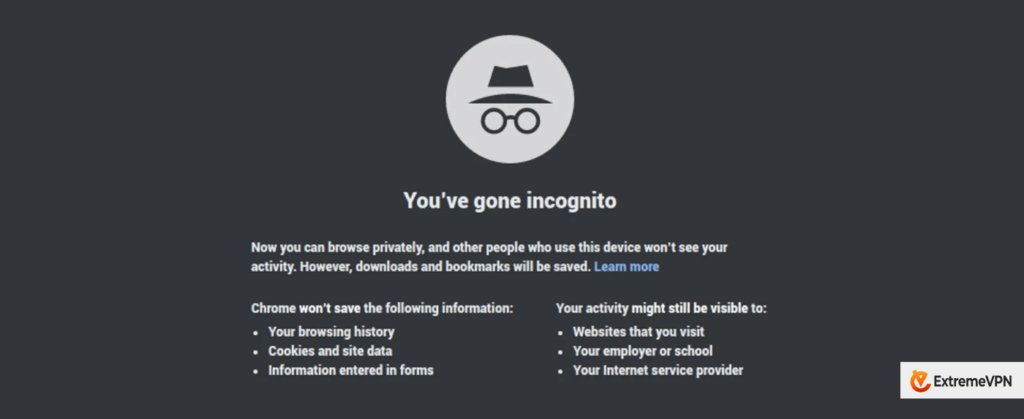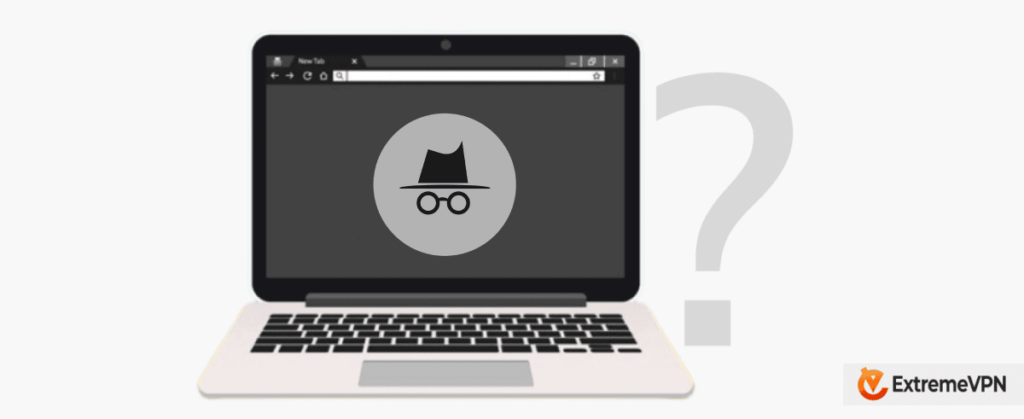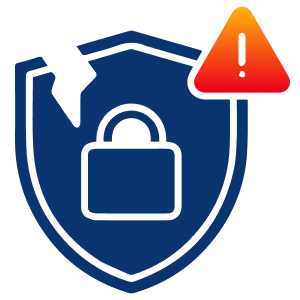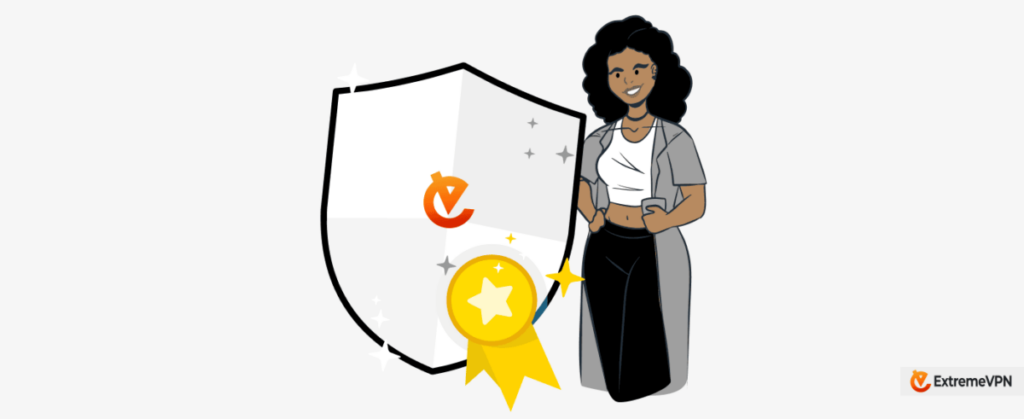As digitalization continues to evolve, privacy concerns are becoming more important. We use ever-evolving internet services daily, which increases our chances of compromising our privacy. To address these security concerns, there is a web browser feature called “Incognito mode.”

Incognito mode ensures privacy and anonymity. But is it enough to guarantee privacy? Many users wonder whether its claims of providing anonymity are true. This article will provide you with all information about incognito mode. It includes its capabilities, limitations, and steps to go incognito.
After understanding the specifics of the incognito mode, you can decide about protecting your data. It also lets you cut your digital footprint.
How to Browse Privately? – Quick Guide
- Choose a privacy-friendly browser: You must use browsers that ensure user privacy. Some browsers do not offer the privacy needed to safeguard your information. So, go for a browser that offers robust privacy features. Some browsers that provide the best privacy are Mozilla Firefox, Brave, and Tor Browser.
- Use a private search engine: Always go for search engines that prioritize your privacy and don’t track your searches. DuckDuckGo and Startpage are popular options. These search engines don’t store your search history or track your online activities.
- Add extensions for extra privacy: Install extensions on your browsers. They block tracking scripts, ads, and other online trackers. You can install uBlock Origin, Privacy Badger, and HTTPS Everywhere. These extensions help you to block trackers.
- Secure your social media settings: Adjust the privacy settings on your social media accounts. It will help you limit the amount of your information shared with others. Doing so lets you control who can see your posts and profile.
- Disable third-party cookies: Configure your browser settings to block or limit third-party cookies. These cookies are often used to track your online activities. Cookies save your personal information, like passwords and searches. Clearing cookies will secure you.
- Use a VPN connection: A VPN encrypts your internet traffic. It makes your IP address unidentifiable. It also makes it harder for others to track your activities. Using a reliable VPN prevents you from getting hacked. ExtremeVPN is the best option available. It provides the best privacy features that make your online activities anonymous.
What is Incognito Mode?

Incognito mode is a feature of web browsers that allows users to browse the internet without any traces. When users open a New incognito tab, it takes them to a separate browsing window. This window operates independently of their regular browsing session. It means the browser stores no browser history, cookies, or site data. Once you close the incognito tab, all your activities terminate immediately.
Incognito mode offers various privacy features. It is useful for multiple situations, like logging into multiple accounts simultaneously. It also helps to conduct searches without any search history. Also, it disables extensions by default. This feature prevents tracking and enhances privacy.
Different browsers named this feature differently:
- Private Mode in Microsoft Edge,
- Private Mode in Firefox,
- Incognito Mode in Chrome, and
- Private Browsing in Safari.
What Does Incognito Mode Do?

Incognito mode primarily helps with local privacy on your device.
- Does not save browsing history: In incognito mode, the browser does not store your browsing history.
- Does not save cookies: Incognito mode is not allowed to save cookies. It prevents retaining information from your browsing activity.
- Does not retain form data: Incognito mode does not save any personal information you use on websites. It includes usernames, passwords, queries, etc.
- Disables extensions by default: Incognito mode automatically disables extensions installed on your browser. Doing this prevents data storage by different sites.
- Does not save site data: When you browse the internet in incognito mode, your device does not store data. It leads to less storage of data.
- Separates browsing sessions: Incognito mode separates your regular browsing session. It makes both browsers independent of impacting each other.
When you close the browser, all information about page visits is automatically deleted. It makes it unidentifiable to the next user. Furthermore, incognito mode hides online activities from individuals near the computer or phone.
What Can’t Incognito Mode Do?

While incognito mode prevents storing your browsing history, it does not provide full anonymity. Here are a few important points to note:
- Does not provide complete anonymity: No matter if you are using incognito mode, it is still possible that you are not fully anonymous.
- Does not encrypt internet traffic: Third parties can still intercept your data using incognito mode.
- Does not protect against malware or phishing attempts: Incognito mode does not protect you from such threats. You should install antivirus software.
- Does not hide your IP address: It does not conceal your IP address. It results in making your location trackable.
- Does not prevent website tracking: Websites can still trace your activities using cookies.
- Does not bypass network or employer monitoring: A network administrator can track your activities.
Is Incognito Mode Safe?

Utilizing incognito mode certainly can improve one’s online privacy. Yet, you should not confuse it with magic giving users invisibility to conceal themselves. Have you received any notifications that your ISP might be watching your actions?
Concealing one’s online identity requires more effort than merely using Incognito mode. Even though local storage won’t store one’s activity, it passes all internet traffic through the user’s ISP or workplace servers. As a result, someone can intercept and monitor this activity. To protect against such threats, consider using a Virtual Private Network (VPN) for maximum anonymity.
Are Private Browsers Better than Incognito Mode?

With each browsing session, Incognito mode provides a clean slate for the user. So, any actions made in private tabs are separate from those done in normal mode. It makes it particularly suitable for those who share devices. Nonetheless, other privacy-oriented browsers can offer similar or greater protection.
Brave is with the user’s privacy in mind. It ensures not to track their IP addresses and includes a built-in ad-blocker. This privacy-first mentality is also in Mozilla Firefox and Tor. It allows private and anonymous usage of the internet. Although Incognito Mode has benefits, you may consider switching to a browser with a more robust protection system.
Using Incognito Mode Comes With Other Risks

- Incognito mode stops storing your data but does not block websites from observing it. These sites can access your activities by cookies, IP address, etc.
- Incognito mode stops saving your browsing history, but your ISP can still watch over it. Also, if you use a shared device, it makes your data available for supervision. So, your activities are still traceable irrespective of Incognito mode.
- You must install antivirus protection to secure yourself from phishing attacks or cyber threats. Incognito mode does not secure you from such threats.
- It does not encrypt your internet traffic, which is one of the disadvantages of incognito mode. It leaves it vulnerable and at high risk of exploitation by hackers.
When Should You Use Incognito Mode?

Using Incognito mode can be helpful when striving to keep your internet usage confidential. A few of the cases in which the mode can be helpful are:
- Shared devices: When sharing a device with others, it is possible to maintain privacy using Incognito mode. It stops the browser from storing browsing history, cookies, and other related data.
- Shopping and research: Web searches and purchasing goods through online shops in Incognito mode safeguard you. It prevents e-commerce sites from monitoring your activities. It also stops them from adjusting the prices according to your browsing history.
- Signing into multiple accounts: Incognito mode can assist when you need to sign into multiple accounts. Separating the sessions allows you to log in to multiple accounts without interruptions.
- Accessing sensitive information: To protect sensitive data, like bank information and personal emails, use Incognito mode when logging in. This can help reduce the risk of compromising your credentials.
- Public computers or networks: While accessing a public computer or joining a public Wi-Fi connection, Incognito mode may offer more privacy by obstructing your browsing history and not storing log-in data on the system.
How to Dodge Trackers With ExtremeVPN?

ExtremeVPN has 6500+ servers in 78+ countries. It offers advanced privacy with AES-256-bit Military Grade Encryption. ExtremeVPN also provides OpenVPN and WireGuard protocols. Its OpenVPN protocol provides users with different encryption levels, and WireGuard implements the most advanced encryption method. Both of these protocols employ the most efficient encryption methods.
Moreover, ExtremeVPN offers quantum-resistant servers for its users. These servers help you safeguard against quantum computing threats, maintain privacy on all your devices, and secure your transactions and communication networks.
ExtremeVPN is compatible with all devices. You can get ExtremeVPN on all your devices, including Android and IOS smartphones, Windows, macOS, and Linux. It is also compatible with routers, smart TVs, and gaming consoles. You can also get ExtremeVPN’s app on the Play and Apple stores.
Conclusion
To preserve a level of anonymity on your device, Incognito mode can be utilized. Nonetheless, it does not provide comprehensive protection or anonymity, as websites, your internet service provider, or network administrators can still track your activities. Incognito mode will not protect against malicious programs or phishing attacks or encrypt online traffic. A holistic approach should be taken to protect yourself online, including a virtual private network, safe browsing techniques, and browser extensions. With these measures, your personal information and online activities can be safeguarded.